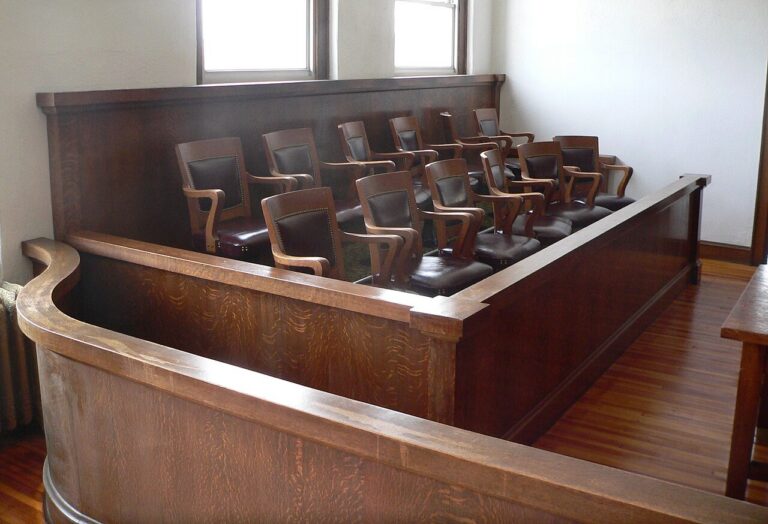
Alex Blutman is a student at Harvard Law School and a member of the Labor and Employment Lab.
The NFL’s longstanding failure to hire non-white candidates into key coaching and executive positions has been well-documented, but a new ESPN analysis reveals much of the same lack of progress in college football. It was merely 1979 when Willie Jeffries became the first Black head coach hired to lead a Division I-A (now FBS, Football Bowl Subdivision) college football team, and it was two years later, in 1981, when Dennis Green became the first Black head coach at a Power 5 (those schools comprising the ACC, Big Ten, Big 12, Pac-12, and SEC) program. The report, which examined the hiring data at Power 5 schools over four decades, found that Black candidates for head coach and athletic director were hired for slightly less than 10% of the total openings for each position. Of the 65 Power 5 football programs, 24 (36.9%) have never hired a Black head coach or athletic director.
In a recent suit against Major League Soccer, Karine Travieso, a former vice president of a media division for the league, alleges racial discrimination and retaliation in her dismissal after she raised concerns about a lack of leadership diversity and need for bias training in the organization. Travieso’s complaint details several instances of discrimination and harassment, incidents that Travieso attempted to ignore to avoid endangering her opportunities for advancement. Following the murder of George Floyd and, in Travieso’s view, MLS’s lackluster response, she began to advocate more enthusiastically for racial awareness and inclusion training. It was then, according to the complaint, that Travieso began to experience retaliation in the form of reduced responsibilities and exclusion from meetings and projects. About a month after filing a report with the league’s human resources department, Travieso was laid off because of the pandemic and restructuring in her division, although MLS then advertised job postings in the media division, which Travieso argues as proof that her dismissal was pretext.
The NLRB secured a key win in a massive case involving casino conglomerate Station Casinos and several unions that have collectively launched a campaign to organize at the many casinos that Station operates in Las Vegas. The dispute centers on the union election and accusations that Station used the pandemic to lay off union supporters. The ALJ overseeing the case denied Station’s attempt to have key executives Frank and Lorenzo Fertitta avoid testifying. Station invoked the apex doctrine, which holds that executives at the apex of a company may not have day-to-day knowledge of the company’s operations, in their petition to revoke subpoenas summoning the Fertitta brothers to testify. In denying the petition, the judge said that the NLRB’s general counsel has broad discretion to call and examine adverse witnesses and that the Fertitta brothers “surely have direct and unique knowledge as to the relationships” among the involved entities.
Plaintiffs survived a motion to dismiss in Johnson v. NCAA, a collective and class action suit in which a group of student-athletes allege that they are employees and that NCAA amateurism rules have illegally denied them compensation in violation of the Fair Labor Standards Act and state law. The court determined that the plaintiffs plausibly alleged that they are employees entitled to wages for time spent related to sports, finding credible plaintiffs’ arguments that their athletic participation interfered with their studies, was not connected to their education, and failed to provide significant educational benefits.










Daily News & Commentary
Start your day with our roundup of the latest labor developments. See all
February 27
The Ninth Circuit allows Trump to dismantle certain government unions based on national security concerns; and the DOL set to focus enforcement on firms with “outsized market power.”
February 26
Workplace AI regulations proposed in Michigan; en banc D.C. Circuit hears oral argument in CFPB case; white police officers sue Philadelphia over DEI policy.
February 25
OSHA workplace inspections significantly drop in 2025; the Court denies a petition for certiorari to review a Minnesota law banning mandatory anti-union meetings at work; and the Court declines two petitions to determine whether Air Force service members should receive backpay as a result of religious challenges to the now-revoked COVID-19 vaccine mandate.
February 24
In today’s news and commentary, the NLRB uses the Obama-era Browning-Ferris standard, a fired National Park ranger sues the Department of Interior and the National Park Service, the NLRB closes out Amazon’s labor dispute on Staten Island, and OIRA signals changes to the Biden-era independent contractor rule. The NLRB ruled that Browning-Ferris Industries jointly employed […]
February 23
In today’s news and commentary, the Trump administration proposes a rule limiting employment authorization for asylum seekers and Matt Bruenig introduces a new LLM tool analyzing employer rules under Stericycle. Law360 reports that the Trump administration proposed a rule on Friday that would change the employment authorization process for asylum seekers. Under the proposed rule, […]
February 22
A petition for certiorari in Bivens v. Zep, New York nurses end their historic six-week-strike, and Professor Block argues for just cause protections in New York City.